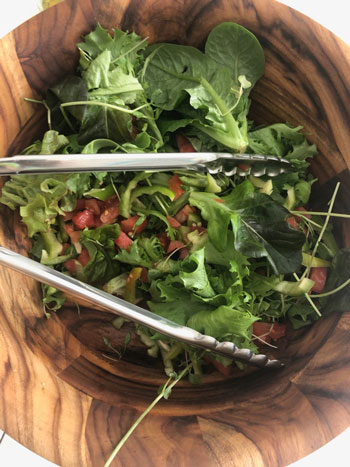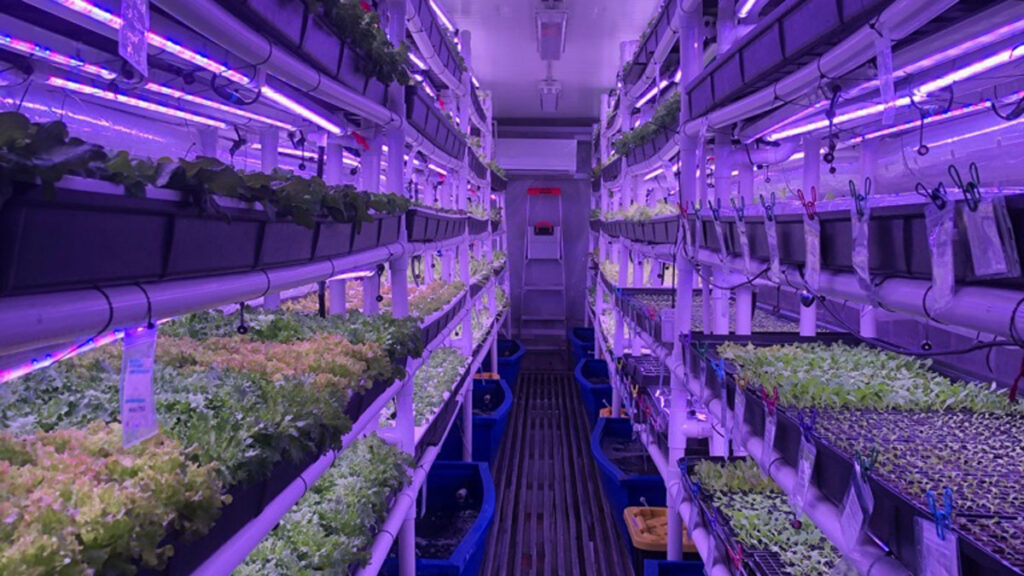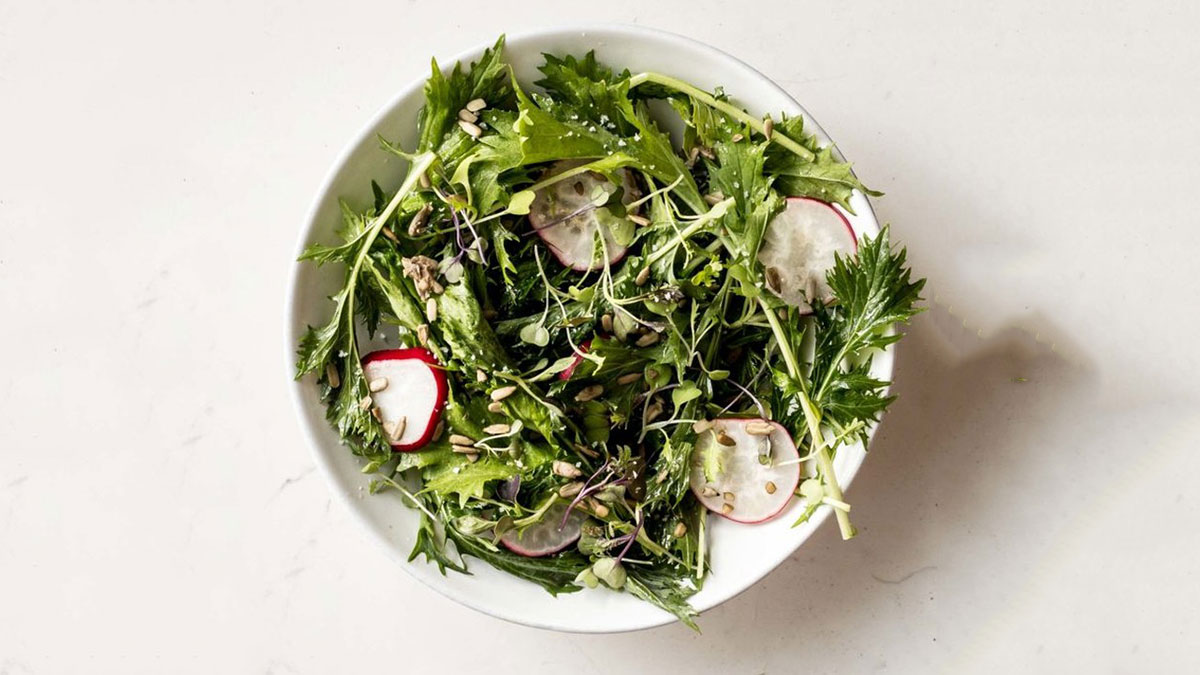How creating super student success starts at the dinner table–or actually–the farm.
Back to school shopping was always my favorite part of starting a new school year. It seemed that a new pencil case filled with sharp pencils, the smell of fresh erasers and a rainbow assortment of highlighters meant the promise of a fresh start where anything was possible. Every year, my mom would take me to Senn’s 5 & 10 in Suniland Mall with a checklist in hand and an unspoken agreement that we were on a very serious mission to make this the best school year yet!

Senn’s is long gone but the ritual of filling up a new backpack with the tools for success remains. This year seems different; like our kids need more. What else can we pack in there to build a strong foundation of physical and mental resilience, sustained focus, attention and confidence for our little (and not so little) ones?
Focusing on food and nutrition are just as important when setting our kids up for success. By filling their backpacks with healthy snacks, a strong foundation can be built on healthy habits, nourishing rituals and consistent routine.
Unfortunately, we live in a nation of individuals that are overfed and undernourished. How is this so? An abundance of hyper-processed foods provide an excess of calories while lacking nutritional value. By way of process, they have been essentially stripped of nutrition. These foods are engineered to hijack our taste buds, producing a neurochemical high that hooks us (and our little ones) into eating more and more, never satisfying our hunger or our nutritional needs.
There is an alternative and it requires effort. Studies show that a balanced whole foods diet supports a healthy brain. A healthy brain produces clarity, focus and sustained attention. Healthy Fat nourishes a growing brain (ex. olive oil, avocado and nut butters). Fiber maintains satiety and feeds a healthy microbiome in the belly–this is where serotonin is produced and directly relates to mood and affect. The phytonutrients found in the rainbow of fruits and veggies support a strong immune system. These qualities can also be found in a third category, minimally processed foods. Think fresh baked breads or unprocessed dairy like whole milk, greek yogurt and full fat cheese, not store-made meals and pre-cut fruit and veggies, or essentially, food items that someone else has prepared or made from scratch for your convenience.
But here’s the thing, these powerful whole foods are up against some hard competition in the hyper-processed easy go-to’s. As a farmer, certified holistic health coach and veggie spokesperson, these are my suggestions for success:
- Make whole foods more palatable.
- Practice gratitude and service as a family.
- Use mealtime as an opportunity to disconnect from technology and connect with each other.
At Box Greens, we sample our freshly harvested, locally and hydroponically grown lettuces in an Apple Cider Vinaigrette. The recipe follows the principal FASS (Fat, Acid, Sugar and Salt). This combination excites the taste buds, it’s balanced, people love it – even the kids. Our Instagram page features an album of little lettuce lovers sampling our greens with the dressing – cutest customers ever. Kids love dipping. A really delicious dip such as salsa, guacamole, hummus or dressing made from fresh ingredients will up-level almost any fresh veggie cooked simply; roasted or steamed.

A gratitude practice is a great way to develop emotional intelligence; they say it trains your subconscious to choose a positive perspective. Try creating your own dinnertime ritual. Have everyone at the table take a turn expressing what they are grateful for on that specific day. Or, develop empathy as a family – another aspect of emotional intelligence. Include the kids in the process of supporting members of this community lacking access to fresh food. Is there a local organization you feel connected to that is delivering food & nourishment to neighbors in need? Review websites and social profiles together and let the kids decide where they’d like to donate. No donation is too small; my favorite is Food Rescue US-Miami.
Mealtime is an opportunity to practice mindfulness. You know that glaze that falls over the kids eyes after screen time? Cue the experience of reengaging in the present moment when they land at the dinner table. Ask the kids to describe what their meal looks like? What flavors do you taste? What do you smell? What is the texture? Engaging the senses is a classic technique to return from a dissociative state. This actually strengthens the brain, engaging the process of exercising neuroplasticity reinforces the ability to shift from screen time to being present with greater ease.
We are all living in uncertain times, under stress and overwhelm. Our kids are feeling it too. My sister and I founded Box Greens two years ago with dreams of nourishing our community. I hope these tips inspire new ways of nourishing your family – filling up your backpacks and heading into a new season with infinite possibilities.
Lisa Merkle is the Co-Founder of Box Greens, a Miami-based hydroponic farm growing non-GMO produce using sustainable, environmentally friendly methods with no pesticides or herbicides. More info at boxgreens.com or follow them @boxgreens.














 Deering Estate
Deering Estate
 Massage Envy South Miami
Massage Envy South Miami
 Calla Blow Dry
Calla Blow Dry
 My Derma Clinic
My Derma Clinic
 Sushi Maki
Sushi Maki
 Sports Grill
Sports Grill
 The Healthy Kitchen
The Healthy Kitchen
 Golden Rule Seafood
Golden Rule Seafood
 Malanga Cuban Café
Malanga Cuban Café

 Kathleen Ballard
Kathleen Ballard
 Panter, Panter & Sampedro
Panter, Panter & Sampedro
 Vintage Liquors
Vintage Liquors
 The Dog from Ipanema
The Dog from Ipanema
 Rubinstein Family Chiropractic
Rubinstein Family Chiropractic
 Your Pet’s Best
Your Pet’s Best
 Indigo Republic
Indigo Republic




 ATR Luxury Homes
ATR Luxury Homes


 2112 Design Studio
2112 Design Studio
 Hamilton Fox & Company
Hamilton Fox & Company
 Creative Design Services
Creative Design Services
 Best Pest Professionals
Best Pest Professionals
 HD Tree Services
HD Tree Services
 Trinity Air Conditioning Company
Trinity Air Conditioning Company
 Cisca Construction & Development
Cisca Construction & Development
 Mosquito Joe
Mosquito Joe
 Cutler Bay Solar Solutions
Cutler Bay Solar Solutions


 Miami Royal Ballet & Dance
Miami Royal Ballet & Dance
 Christopher Columbus
Christopher Columbus
 Pineview Preschools
Pineview Preschools
 Westminster
Westminster
 Carrollton
Carrollton
 Lil’ Jungle
Lil’ Jungle
 Frost Science Museum
Frost Science Museum
 Palmer Trinity School
Palmer Trinity School
 South Florida Music
South Florida Music
 Pinecrest Orthodontics
Pinecrest Orthodontics
 Dr. Bob Pediatric Dentist
Dr. Bob Pediatric Dentist
 d.pediatrics
d.pediatrics
 South Miami Women’s Health
South Miami Women’s Health

 The Spot Barbershop
The Spot Barbershop
 My Derma Clinic
My Derma Clinic




 Miami Dance Project
Miami Dance Project

 Rubinstein Family Chiropractic
Rubinstein Family Chiropractic
 Indigo Republic
Indigo Republic

 Safes Universe
Safes Universe
 Vintage Liquors
Vintage Liquors
 Evenings Delight
Evenings Delight





 Atchana’s Homegrown Thai
Atchana’s Homegrown Thai
 Baptist Health South Florida
Baptist Health South Florida

 Laser Eye Center of Miami
Laser Eye Center of Miami
 Visiting Angels
Visiting Angels
 OpusCare of South Florida
OpusCare of South Florida

 Your Pet’s Best
Your Pet’s Best





 HD Tree Services
HD Tree Services
 Hamilton Fox & Company
Hamilton Fox & Company


 Creative Design Services
Creative Design Services